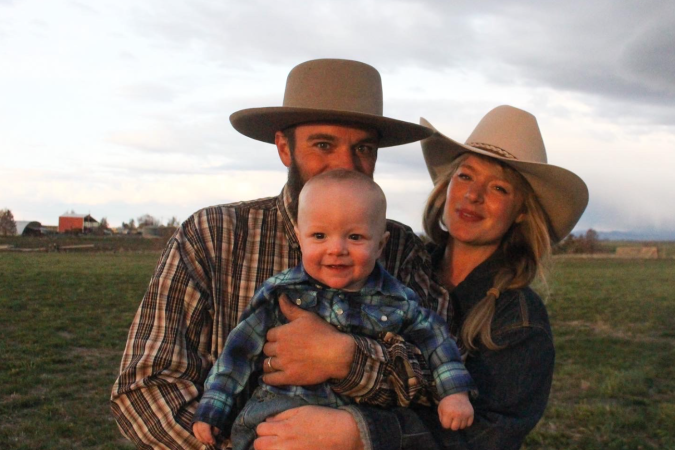Casad Family Farms uses Organic, Biodynamic, and Permaculture principles to sustainably steward 400+ acres of land in Madras, Oregon. The Farm is co-owned by husband and wife, Chris & Cate Casad. Casad Family Farms regeneratively raises cattle and heritage breed hogs, as well as all of the feed needed for their animals year round. They are deeply rooted and well known in their community, first for their amazing vegetables, and now, more and more for their regeneratively raised meat products. In 2022 they launched their Direct Delivery Meat Box Program where they ship their meats frozen to customers nationwide, as well as offering Local Delivery in Bend, Oregon.
They do not use chemical fertilizers or pesticides, protecting the soil, the waterways, and human health. They have helped to transition over 200 acres of previously conventionally farmed land into organic land managed regeneratively with cover crop and prescriptive grazing. At the heart of their farming ethos is a dedication to biodiversity, sustainability, and biotic health for soils, humans and communities.
Regenerative & Sustainable Practices
Casad Family Farms has worked for many years to create a closed loop farm system that is influenced by biodynamic principles in which the farm ecosystem can rely on the soil, plants, animals and earthly influences for health, productivity, and holism. Nothing needs to be brought in, and there is no “waste” to remove. Specific regenerative and sustainable practices include:
- Holistic grazing and land management is used create a resilient closed loop cycle;
- Highly diverse cover crops are planted in the fall after summer harvest to maximize the winter precipitation;
- Seed is saved from year to year to ensure that they are growing regional/climate adapted seeds that are resilient to drought, weather and climatic extremes, and resilient to pest pressure;
- They grow all of their own feed on the farm to ensure that the land is managed in a closed loop farming model;
- They plant pollinator plots, establish wildlife corridors, and work to re-establish a grove of oak trees to support the biodiversity of their land;
- They have shifted to focusing on meat production, which is less water-intensive and better suited for their bioregion with the increased heat and drought that Central Oregon has seen in recent years;
- Chris and Cate are trained in holistic management through the Savory institute and all meat and honey products are Land to Market Verified by the Savory Institute.

